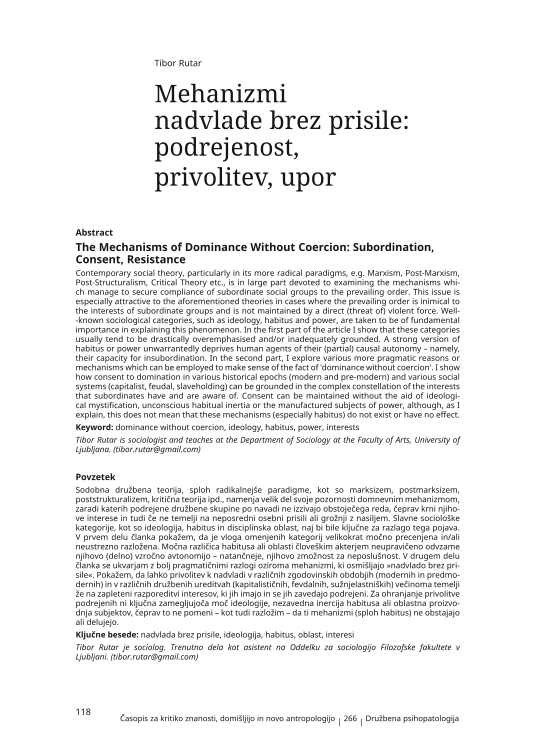Contemporary social theory, particularly in its more radical paradigms, e.g. Marxism, Post-Marxism, Post-Structuralism, Critical Theory etc., is in large part devoted to examining the mechanisms which manage to secure compliance of subordinate social groups to the prevailing order. This issue is especially attractive to the aforementioned theories in cases where the prevailing order is inimical to the interests of subordinate groups and is not maintained by a direct (threat of) violent force. Well-known sociological categories, such as ideology, habitus and power, are taken to be of fundamental importance in explaining this phenomenon. In the first part of the article I show that these categories usually tend to be drastically overemphasised and/or inadequately grounded. A strong version of habitus or power unwarrantedly deprives human agents of their (partial) causal autonomy – namely, their capacity for insubordination. In the second part, I explore various more pragmatic reasons or mechanisms which can be employed to make sense of the fact of 'dominance without coercion'. I show how consent to domination in various historical epochs (modern and pre-modern) and various social systems (capitalist, feudal, slaveholding) can be grounded in the complex constellation of the interests that subordinates have and are aware of. Consent can be maintained without the aid of ideological mystification, unconscious habitual inertia or the manufactured subjects of power, although, as I explain, this does not mean that these mechanisms (especially habitus) do not exist or have no effect.




